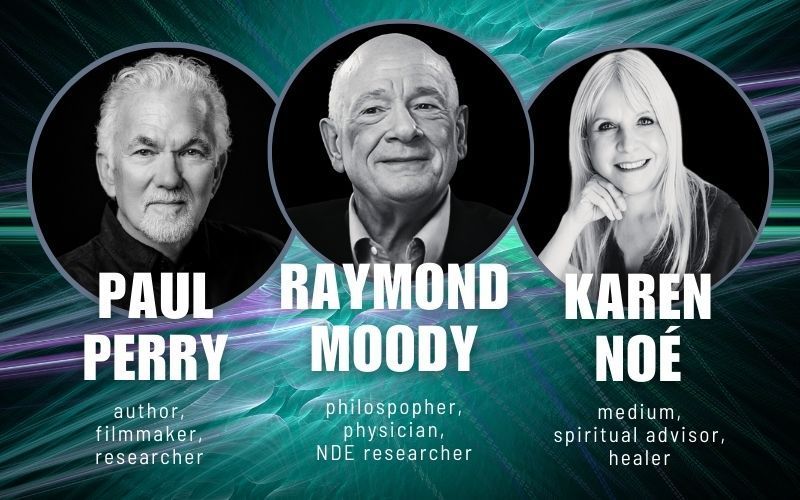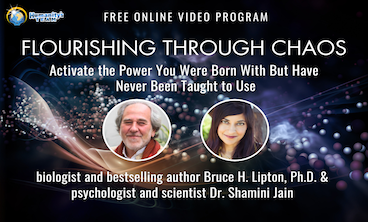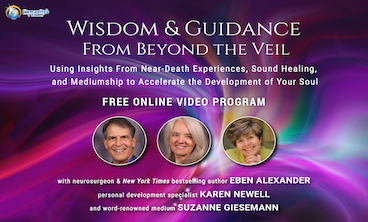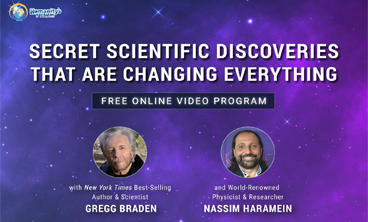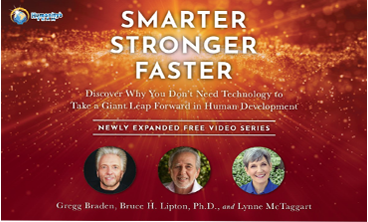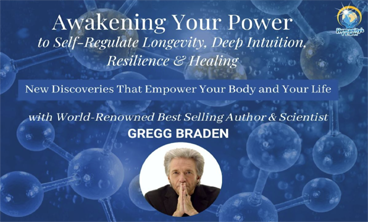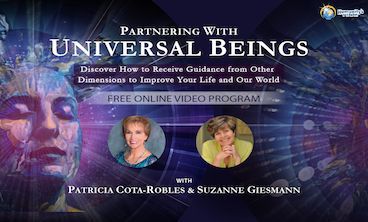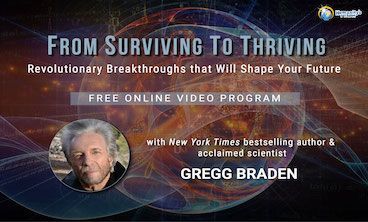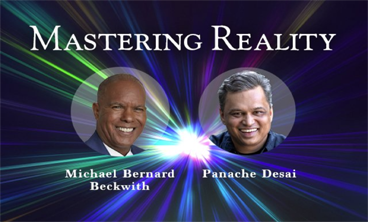
Science, Spirituality, & Conscious Living: A Unifying Perspective
In a world often perceived as divided between the realms of science and spirituality, the concept of conscious living emerges as a bridge—a unifying perspective that harmonizes these seemingly disparate domains. At first glance, science and spirituality may appear at odds, but a deeper examination reveals their alignment in the pursuit of understanding human existence and the universe. In this article, we will explore the convergence of modern science, spirituality, and the idea of conscious living–shedding light on their interconnectedness and the potential for a unifying perspective.
The Duality of Science and Spirituality
Science: The Pursuit of Knowledge
Science is the systematic quest for knowledge about the natural world and the universe. It is characterized by empirical observation, experimentation, and the formulation of testable hypotheses. Science seeks to unravel the mysteries of the cosmos, from the microscopic world of subatomic particles to the vastness of galaxies.
Key tenets of science include:
- Empirical Evidence: Scientific theories and claims are grounded in empirical evidence obtained through observation and experimentation. This evidence forms the basis for scientific knowledge.
- Testability: Scientific hypotheses and theories must be testable and falsifiable. This means that they can be subjected to experimentation and, if necessary, disproven if the evidence contradicts them.
- Naturalism: Science operates under the assumption of naturalism, which means it seeks natural explanations for natural phenomena. It does not invoke supernatural or paranormal causes.
- Progressive Accumulation of Knowledge: Scientific knowledge evolves and accumulates over time. New discoveries build upon existing theories, leading to a deeper understanding of the universe.
Spirituality: The Quest for Meaning
Spirituality, on the other hand, transcends the boundaries of empirical observation and physicality. It is a deeply personal and often ineffable pursuit of meaning, purpose, and connection to something greater than oneself. While spirituality is highly diverse and can manifest in various forms, it often includes elements such as:
- Transcendence: Spiritual experiences often involve transcending the ordinary and accessing higher states of consciousness. These experiences may lead to feelings of interconnectedness and oneness.
- Moral and Ethical Frameworks: Spirituality often provides a moral and ethical framework for individuals, guiding their values and behaviors based on principles of compassion, love, and empathy.
- Inner Exploration: Many spiritual practices involve inner exploration and self-discovery. This may include meditation, prayer, introspection, and contemplation.
- Search for the Divine: Spirituality often involves a search for the divine or a higher power. It can take the form of religious beliefs or a more abstract quest for spiritual truth.
The Intersection of Science and Spirituality
While science and spirituality may appear distinct, there are areas where they intersect, offering a glimpse into their shared understanding of the universe:
1. The Study of Consciousness
Consciousness is a fundamental aspect of both science and spirituality. In science, the study of consciousness—often referred to as consciousness science or neuroscience—explores the nature of consciousness, its neural basis, and the relationship between the brain and subjective experience.
In spirituality, consciousness is often seen as the essence of the self and the source of spiritual insight. Practices such as meditation and mindfulness aim to deepen one's awareness and access higher states of consciousness.
The convergence: Both science and spirituality acknowledge the significance of consciousness. While science seeks to understand its neural underpinnings, spirituality explores its transcendental aspects.
2. Quantum Physics and Mystical Experiences
Quantum physics, a branch of science that delves into the behavior of subatomic particles, has sparked intriguing connections with spirituality. Quantum phenomena, such as entanglement and non-locality, challenge classical notions of reality and suggest a deep interconnectedness in the universe.
Some spiritual perspectives draw parallels between quantum principles and mystical experiences. They propose that the interconnectedness observed in quantum physics aligns with spiritual notions of oneness and unity.
The convergence: Quantum physics invites contemplation of the interconnected nature of reality, bridging the gap between scientific inquiry and spiritual exploration.
3. The Search for Meaning
Science and spirituality share a common quest for meaning. While science seeks to understand the mechanisms and laws governing the universe, spirituality delves into questions of purpose, ethics, and the human experience.
Many scientists, including renowned figures like Carl Sagan and Albert Einstein, have expressed a sense of awe and wonder at the mysteries of the cosmos. Their scientific pursuits are driven, in part, by a deep sense of curiosity and a desire to comprehend the profound questions of existence.
The convergence: The pursuit of meaning and understanding unites science and spirituality, as both seek to unravel the mysteries of the universe in their own unique ways.
4. Well-Being and Human Flourishing
Science has delved into the study of human well-being, exploring the factors that contribute to a fulfilling life. Positive psychology, for example, focuses on strengths, virtues, and factors that enhance human flourishing.
Spirituality also emphasizes well-being, often through practices that promote inner peace, contentment, and emotional balance. Mindfulness meditation, for instance, has been extensively studied for its positive effects on mental health and well-being.
The convergence: Both science and spirituality converge in their interest in human well-being, offering complementary approaches to understanding and nurturing mental and emotional health.
Living Intentionally: The Pillars of Conscious Living
Imagine a world where each step we take and every decision we make is imbued with awareness, compassion, and unity. Imagine for a moment what that world would look like. More cooperation and less competition. More open heartedness and less fear and reactivity. It sounds radiant, doesn't it? Well, I am happy to report that the world I describe is not just a possibility – it is already unfolding before us. Each day, more and more people are waking up to the power of conscious living, and the best news is, we're nearing atipping point—a moment when just 10% of the global population embracing this way of life could ignite a ripple effect, with massive positive global change as a result. Conscious living is not only close to my heart but is the essence of our collective journey on this planet. However, right now you may be wondering what exactly conscious living is, why it’s taking over, and how you can be a part of this extraordinary movement. Well friends, let's dive in and discover!
What is Conscious Living?
Conscious living is not merely a trend or a catchphrase. It's a way of being in the world, a modality of existence. It's about making choices that are in alignment with our higher self and the greater good of all. It means being aware in each moment of the sacred interconnectedness of life and making decisions from this space of unity and oneness.
Every action we take, every thought we entertain, and every emotion we experience has an impact not only on our individual lives but on the collective fabric of humanity and, indeed, the entire universe. When we live consciously, we recognize this profound truth and act from a place of responsibility and love. We begin to see ourselves not as isolated entities but as integral parts of something much larger and more beautiful.
Why is Conscious Living Important?
Let us consider why conscious living is so important, and why we find it taking center stage right now. First, the challenges of the modern world—from climate change to social injustice—are urging us to look deeper and find sustainable solutions that go beyond quick fixes or selfish gains. The traditional paradigms of "me-first" or "material gains at any cost" are crumbling because they are not in alignment with the innate wholeness and unity of existence. These outdated ways of thinking and being in the world create division and suffering, and leave our planet wounded and in desperate need of care.
But, as we awaken to the understanding that we are all interconnected, and as we recognize the divinity in ourselves and in every life form, we naturally feel compelled to live more consciously. And, guess what? Many of us are already doing it! We are leading lives suffused with purpose, joy, and a deep sense of contributing to a better world. The snowball has begun rolling, and there's no stopping the momentum it has now.
How Do You Begin to Live Consciously?
The journey to conscious living begins with awareness—of yourself, your environment, and your interconnectedness with all that exists. Start by tuning into your thoughts, emotions, and actions. Observe them without judgment. The mere act of observing begins the process of transformation.
Next, bring mindfulness into your daily activities. Whether you're eating, working, exercising, running errands, or simply relishing a few minutes of rest in your favorite chair, be fully present with the moment and take in all the elements this activity brings. Take pleasure in and appreciate the sensations, the experiences, and the nuances of each moment. Additionally, consider adding a regular meditation practice to deepen your awareness and strengthen your connection to the inner self and the universe at large. Just a few minutes each day goes a long way toward a more aware and connected self.
And let's not forget the magic of intention setting.Setting an intention is a powerful way to begin anything in life, whether it's the start of a new day, a meeting at work, or a simple trip to the grocery store. Asking ourselves how we would like to show up in this world – and setting the right intention – is one of the quickest routes to conscious living. Intention setting is like planting a seed in fertile soil: eventually everything grows into the life you want to experience. With the right intention, you align not just your actions but your thoughts and emotions, creating a ripple effect that manifests as positive outcomes in your life and the lives of those you touch. Intention setting as a repeated practice allows you to become more aligned with your highest good and the greater good of all.
Pillars of Conscious Living
So, what are the cornerstones that support a life lived consciously? Here are some key pillars:
Awareness: As mentioned earlier, everything starts with awareness—awareness of self, others, and the environment.
Unity: Recognize and celebrate the interconnectedness of all beings. Cultivate a sense of community and shared destiny, understanding that we are all connected to one another and the Universe.
Sustainability: Make choices that not only benefit you but also the environment and future generations. This is about creating a world where everyone can flourish.
Compassion: Always act from a place of love and kindness. When we understand that we are all connected, compassion flows naturally. Cultivate an open heart that radiates love and understanding towards ourselves and others.
Mindfulness: Be present in every moment, for each moment is a divine gift and an opportunity to act consciously. This helps you live authentically and make decisions that align with your values.
Integrity and Authenticity: Let your thoughts, words, and actions be in alignment with your highest values and the greater good. This means being true to yourself and your values, and not conforming to societal pressures or norms.
Personal Responsibility: Take charge of your own actions, understanding that each choice contributes to the collective consciousness.
Changing Our Way of Living
To incorporate these pillars into our daily life, we need to adopt a multi-dimensional approach. Begin with small, achievable changes. You could begin by dedicating just five or ten minutes a day tomeditation or by choosing to recycle. As you gain confidence, you can take on more significant challenges—like living a more sustainable lifestyle or getting involved in community service.
Engage with like-minded individuals and communities who support your journey. The power ofcollective intention cannot be overstated. And remember, this is not a sprint; it's a lifelong marathon. Small actions spread over time amount to big and worthwhile gains. The aim is not to reach a destination but to continually evolve, both as individuals and as a collective.
Let it be known that conscious living is not just an idea; it's the most transformative and sustainable way to experience our time on Earth. It’s a mission, an aspiration, a glorious way of co-existing together as partners on this planet. And the incredible thing is, it’s accessible to each and every one of us, right here, right now. As we tread this path together, let's keep our hearts open and our spirits high, for the world we've been dreaming of is not just a possibility—it's a guarantee if we make the conscious choice to create it.
So, are you with me? With your support and participation, conscious living will not just be the "new normal"; it will be a vibrant tapestry of existence that honors the sanctity of life at every level. Together, we can make this dream a reality and set humanity on a path to make conscious living pervasive by 2040.
If you’d like more information on conscious living, please check out our free training,Accelerating Your Conscious Evolution: Training for a Brighter Future, and get started on your path to a deeper level of understanding today!
The Role of Conscious Living
Conscious living emerges as a key element in bridging the gap between science and spirituality. It serves as a unifying perspective that acknowledges the validity of both empirical inquiry and spiritual exploration. Here's how conscious living contributes to this convergence:
1. Mindful Awareness
Conscious living encourages mindful awareness—the practice of being fully present in the moment. Mindfulness allows individuals to appreciate the beauty and intricacies of the natural world, fostering a sense of wonder akin to that expressed by scientists and spiritual seekers.
2. Interconnectedness
Conscious living promotes the recognition of interconnectedness, echoing both scientific concepts of ecological interconnectedness and spiritual notions of oneness. This awareness of interconnectedness nurtures a sense of responsibility toward the environment and all living beings.
3. Ethical Choices
Conscious living encourages ethical choices that align with values of compassion, empathy, and sustainability. These choices resonate with both scientific principles of responsible stewardship of the planet and spiritual ethics centered on love and kindness.
4. Inner Exploration
Spiritual practices often involve inner exploration and self-discovery, which are integral to conscious living. Engaging in practices such as meditation and introspection deepens one's self-awareness and fosters a sense of inner peace.
Scientific Insights into Spiritual Experiences
Modern science has offered insights into the neural basis of spiritual experiences. Research in neuroscience and psychology has explored the brain mechanisms associated with feelings of transcendence, interconnectedness, and mystical states.
Key findings include:
- Neural Correlates of Meditation: Studies have shown that meditation practices can induce changes in brain activity associated with heightened awareness, emotional regulation, and altered states of consciousness.
- Effects of Psychedelics: Research into the effects of psychedelic substances like psilocybin and LSD has revealed their potential to induce profound mystical experiences. These experiences often involve a sense of interconnectedness and transcendence.
- Neurotheology: The emerging field of neurotheology investigates the neural basis of spiritual and religious experiences. It explores how specific brain regions and neurotransmitters may be involved in such experiences.
While these scientific investigations shed light on the brain's role in spiritual experiences, they do not negate the significance of these experiences or their potential for personal growth and transformation. Instead, they provide a neural framework for understanding the subjective aspects of spirituality.
Spiritual Insights into Scientific Exploration
Conversely, spiritual perspectives can enrich scientific exploration by offering insights into the profound interconnectedness of all life. Spiritual insights include:
- Oneness: Many spiritual traditions emphasize the concept of oneness—that all of existence is interconnected and part of a greater whole. This perspective aligns with ecological science's recognition of the interdependence of ecosystems.
- Transcendence: Spiritual experiences often involve a sense of transcendence, where individuals perceive a reality beyond the physical world. This mirrors the quest of theoretical physics to understand the fundamental nature of the universe.
- Consciousness: Spirituality explores the nature of consciousness and its relationship to the material world. These inquiries resonate with neuroscience's exploration of consciousness and the brain.
Conscious Living as a Bridge
Conscious living serves as a bridge that unites scientific inquiry and spiritual exploration. It invites individuals to embrace the empirical rigor of science while acknowledging the profound experiences and insights that spirituality offers.
1. An Invitation to Wonder
Conscious living encourages wonder and awe at the mysteries of the universe. It invites individuals to explore the cosmos with scientific curiosity while recognizing the transcendental experiences that spirituality unveils.
2. A Call for Responsible Stewardship
Conscious living emphasizes responsibility toward the environment and all living beings. This resonates with ecological science's call for responsible stewardship of the planet and the spiritual ethic of compassionate care for the Earth.
3. A Path to Inner Peace
Conscious living practices, such as mindfulness and meditation, lead to inner peace and emotional balance. These practices align with the pursuit of well-being in both scientific and spiritual contexts.
4. The Quest for Unity
Conscious living fosters a sense of unity and interconnectedness. It invites individuals to explore the profound interconnectedness of the universe as both a scientific reality and a spiritual truth.
The Potential for a Unifying Perspective
In a world facing complex challenges, the convergence of science, spirituality, and conscious living offers a unifying perspective. It invites individuals to transcend rigid dichotomies and embrace a holistic understanding of human existence and the universe.
This unifying perspective has the potential to:
- Foster Compassion: By recognizing the interconnectedness of all life, individuals are more likely to act with compassion and empathy toward others and the planet.
- Promote Sustainability: The awareness of our responsibility to the environment, rooted in both science and spirituality, can drive sustainable choices and environmental conservation efforts.
- Nurture Inner Fulfillment: The practices associated with conscious living lead to inner peace and fulfillment, contributing to individual well-being and emotional balance.
- Inspire Scientific Inquiry: The profound experiences of spirituality can inspire scientific curiosity and exploration, encouraging scientists to investigate the mysteries of the universe with a sense of wonder.
Changing Humanity's Future: A Call to Conscious Living
In a world grappling with mounting challenges ranging from isolation, anxiety, and depression to devastating climate change, dangerous weather patterns, escalating conflicts, and social and political unrest, a clarion call resounds—its reverberation calling upon humanity to take a conscious leap toward a brighter future. This call to action is grounded in the powerful idea of conscious living, a philosophy that transcends individual well-being to encompass the greater good of all. In this article we will explore the concept of conscious living as a solution to global challenges and its potential to positively impact both individuals and the world as a whole.
The Cry for Change
As we navigate the complexities of the modern world, it is evident that the challenges we face are multifaceted and interconnected. The global community grapples with existential threats, social disparities, environmental degradation, and a pervasive sense of disconnection. It is against this backdrop that the concept of conscious living emerges as a means of hope and transformation.
The call for change is not new. Visionaries, philosophers, spiritual leaders, and scientists have long advocated for a shift in human consciousness. From the teachings of ancient sages to the wisdom of modern thinkers, there is a recurring message—the need to recognize our interconnectedness and embrace a more conscious way of life.
The Essence of Conscious Living
At its core, conscious living is a philosophy that invites individuals to expand their awareness beyond the confines of their personal desires and concerns. It encourages a profound shift in perspective—one that acknowledges the inherent unity and interconnectedness of all life. The essence of conscious living can be distilled into several key principles:
1. Unity and Oneness
Central to the philosophy of conscious living is the recognition of the unity and oneness that permeates the universe. This perspective asserts that every living being is part of a larger whole—a cosmic tapestry in which each thread is interconnected. This concept aligns with Albert Einstein's profound insight that "a human being is part of a whole, called by us the Universe."
In a world often characterized by division and separation, embracing unity and oneness can be a profound catalyst for positive change. When individuals recognize that their actions ripple through the interconnected fabric of existence, they are more likely to make choices that benefit not only themselves but the entire web of life.
2. Serving Life First
Conscious living calls upon individuals to prioritize service to all forms of life. It is a shift from self-centeredness to a perspective where the well-being of others and the planet itself takes precedence. This principle echoes the wisdom found in spiritual traditions and resonates with the idea that we are all custodians of the Earth and stewards of life.
When individuals choose to serve life first, they contribute to the flourishing of the world around them. Acts of compassion, kindness, and ecological responsibility become the cornerstone of their daily lives, fostering an environment where all beings can thrive.
3. Living in Harmony
Harmony is the natural outcome of conscious living. When individuals awaken to the interconnectedness of all things, they experience an inner harmony that extends outward. Living in harmony means aligning one's actions, thoughts, and intentions with the broader currents of life, embracing the flow of existence rather than resisting it.
In this state of harmony, individuals find fulfillment, purpose, and a sense of being part of something greater than themselves. The illusion of separation dissolves, and a profound sense of belonging emerges.
The Power of Collective Consciousness
One of the most compelling aspects of conscious living is its potential to create a ripple effect that extends far beyond individual transformation. It is the belief that as more individuals embrace this way of life, a tipping point will be reached, leading to a dramatic positive shift in global consciousness.
Research in the field of collective consciousness suggests that when a critical mass of people holds positive intentions and engages in actions aligned with the greater good, it can influence the behavior and attitudes of the broader population. This phenomenon offers hope that by collectively elevating consciousness, we can address global challenges more effectively and with greater clarity than ever before.
Humanity's Team: A Catalyst for Change
The call to conscious living is not merely an abstract idea but a tangible movement actively championed by organizations like Humanity's Team. Collaborations with visionary leaders such as Neale Donald Walsch and the Conversations with God Foundation have given rise to initiatives aimed at bringing conscious living to the forefront of human awareness.
Humanity Stream+: A Platform for Transformation
One of the noteworthy endeavors born out of this movement isHumanity Stream+, a conscious streaming platform that offers a diverse array of transformational education programs. Accessible on any device, this platform serves as a gateway to the wisdom of thought leaders and spiritual teachers from around the world.
Humanity Stream+ is not merely a repository of knowledge; it is a conduit for personal and collective evolution. With its One-for-One program, it extends the opportunity for growth to underprivileged and underserved individuals, aiming to make conscious education accessible to every corner of the globe.
Embracing the Wisdom of Conversations with God
Neale Donald Walsch, a modern-day spiritual messenger and author of the bestselling Conversations with God book series, has been a guiding light in the quest for conscious living. His profound insights into the nature of existence, the unity of all life, and the benevolent essence of the universe resonate with millions worldwide.
The Conversations with God Foundation, in collaboration with Humanity's Team, has been instrumental in disseminating these teachings and empowering individuals to lead more fulfilled, connected, and conscious lives. Their work underscores the idea that conscious living is not a solitary journey but a collective endeavor.
The Alignment of Science and Spirituality
The concept of conscious living is not confined to spiritual or philosophical realms. Modern science is increasingly converging with ancient wisdom, affirming the interconnectedness of all life and the consciousness inherent in the universe.
Leading unified physicistNassim Haramein's research posits that the universe is not a random collection of matter but a living, loving, and conscious cosmos. His work underscores the idea that humankind and the universe share a profound unity—an interconnectedness that defines our very existence.
Haramein's insights echo the teachings of spiritual traditions and reinforce the importance of conscious living as a guiding principle for humanity.
The Urgency of Now
As we confront the challenges of our time—be it the global pandemic, conflicts on the world stage, social injustices, or environmental crises—the urgency of conscious living becomes evident. The status quo has brought us to a precipice where the future appears uncertain and bleak.
In the midst of these challenges, the message is clear: now is the time for humanity to embrace conscious living as the key organizing principle for human life on Earth. The time for action is upon us, and the need for a paradigm shift has never been more pressing.
The Path Forward
The path forward begins with self-awareness and personal transformation. It is an individual journey that ultimately influences the collective. By choosing to live consciously, individuals can catalyze positive change in their immediate surroundings and contribute to the broader transformation of society.
Education plays a pivotal role in this process. It is through learning and introspection that individuals can deepen their understanding of conscious living and its implications for themselves and the world. Education is not about changing minds but expanding them.
Creating Critical Mass
Conscious living is not a solitary pursuit; it is a collaborative endeavor that gains momentum as more individuals embrace its principles. The idea of critical mass is central to the philosophy of conscious living. It suggests that when a significant portion of the population adopts conscious living, it can lead to a global shift in consciousness.
In the words of God, as conveyed in the Conversations with God series, humanity can create a whole new way of living on Earth within a single generation. The challenges we face are not insurmountable, but they require a collective commitment to conscious evolution.
The Future We Choose
The future of humanity rests in our hands. We stand at a crossroads, with the choice to continue down a path of disconnection, division, and despair, or to embark on a journey of conscious living—a path that promises unity, harmony, and a flourishing world for all.
Changing humanity's future begins with a simple yet profound choice—to live consciously. It is a choice that has the power to transform not only our individual lives but also the destiny of our planet. As we heed the call to conscious living, we embark on a journey toward a brighter, more harmonious, and interconnected world—a world where we recognize that we are all one, and our actions have the power to shape a future filled with hope and possibility.
A Unified Vision
In the pursuit of understanding human existence and the universe, science, spirituality, and conscious living need not remain in separate domains. Instead, they can coalesce into aunified vision—one that honors empirical inquiry while embracing the transcendental, and that encourages wonder, compassion, and ethical responsibility.
This unified vision invites individuals to embark on a journey of exploration—one where the scientific method and spiritual insight complement each other, leading to a deeper understanding of both the material and metaphysical dimensions of reality. It is a vision that transcends duality and fosters a holistic perspective on life, consciousness, and the interconnectedness of all existence.
As humanity faces the challenges of the 21st century, this unifying perspective offers a path forward—a path where science, spirituality, and conscious living converge to illuminate the profound mysteries of the cosmos and guide humanity toward a more enlightened and harmonious future.
Share this post!
LATEST BLOGS
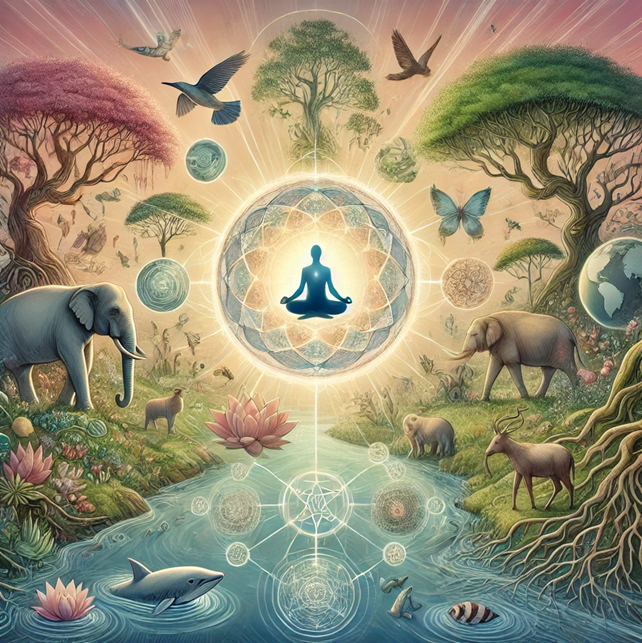



FREE PROGRAMS
LISTEN TO ONE OF OUR RECENT PODCASTS
Sign up now so you never miss a blog post, podcast,
or free event with Humanity's Team!



